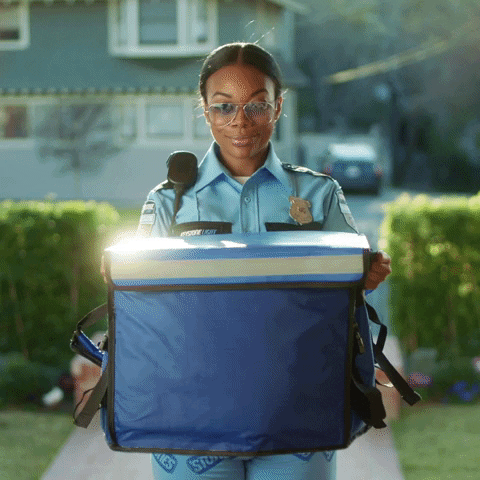Hi 👋, Tanvi here.
Happy Monday, and welcome to another edition of Filter Coffee.
Let’s go ahead and get started:
Cars take on new meaning 🚗
The global pandemic and following lockdown seems to have reinvented the role of automobiles in our lives. Before the pandemic people saw cars primarily as a mode of transportation but now vehicles are emerging as an extension of the home for locked-down families, facilitating travel without violating any social distancing norms.

This is particularly important because over the past several decades human beings were moving away from car ownership, and embracing more sustainable modes of transportation including trains, buses, and even ride hailing platforms. But that trend may have been reversed forever. 🤔
Outdoors have already started to evolve around this new reality. Drive-in theaters in many countries are facing a renewed interest, picnics are taking place in the back of trucks, graduation ceremonies and birthdays are celebrated by waving through windows and by driving through university campuses.
Also, religious activities such as delivering church sermons are being conducted through cars in parking lots, gossip mongers are making sure they remain updated about the latest gossip with their cars parked from side to side.
Not just that, cars have proven to be a saving grace for small businesses that serve clients using drive through facilities, allowing shops, bars, and restaurants to stay open and be able to pay rent as foot traffic falls considerably. 💇
Cars have certainly allowed people to broaden their world and quarantine zones, and we believe this trend is here to stay.
State of Maharashtra to reopen schools 🏫
Maharashtra is planning to open its schools from June 15 onwards for the next academic year. According to the Education Minister for the state Varsha Gaikwad, only those schools that are not in the red zones will be reopened on the scheduled date. ✍️

Here are some changes to the system that are being considered:
-
Running classes in shifts
-
Shortening school hours
-
No more morning assembly sessions will be held
-
Mandatory masks for teachers and students
-
Only 1 student per desk to be allowed
Maharashtra is the hot-spot of Covid-19 infections with over 47,000 cases and 1,577 deaths. Read more about the announcement here.
The fashion industry is hit hard 💄
Italy’s $180 Billion fashion industry is known for its glamorous brands. More than 40% of global luxury goods production happens in Italy. The industry is a well built network of retailers, distributors, designers, manufacturers etc. who keep global fashion humming. Unfortunately, Italy is also one of the hardest hit countries by the pandemic.

With tourism down, and social distancing norms in place, the big brands are facing a lot of trouble. Brands have seen more than 80% decline in orders since the pandemic began, making this one of the toughest times financially for the industry since its origins nearly 9 centuries ago. 🙁
When large brands suffer, its always the small suppliers who take the hardest hit. Suppliers who provide everything from soles to fabrics are going under as they operate on small margins most of the time. The big companies are taking it upon themselves to support them because they face more threats of disappearance, but without a clear picture of when business will resume, there is a lot of uncertainty.
Brands are also stepping up to their social responsibility, with help in manufacturing Personal Protective Equipment (PPE), contribution to hospitals, food and other programs, while countless others are contributing money. 👏
Also, over time as lock-downs are eased and as workers return to their jobs, companies are going to have to make serious investments in adhering to the government mandated protective measures, including abiding by social distancing norms and create a safer working space for its employees by providing masks and sanitation - which will increase costs of operation, further dragging business down.
Fashion almost forms 1.5% of Italy’s GDP, of which garments is over 45%. These are uniquely challenging times for the industry and we hope recovery is quick. Read more.
Boredom may be productive 😴
As schools remain closed and work from home becomes routine, many of us are stuck at home with nothing to do on our hands. Researchers however believe there has never been a better time to understand how human beings behave during times of mass boredom - does it make us weak as a species, or more creative, or perhaps more sad?
This BBC article looks at countless quotes from successful artists, writers, and other professionals who describe how they leverage a bored state of mind to create valuable work in their lives. Also learn about the latest research going on in the area here.
“Boredom is not in itself creative – it’s what it leads to that is important” – John Eastwood
Big-brother Bezos enters food delivery 🍕
Amazon is taking the fight to Swiggy and Zomato as it looks all set to enter the food delivery business in India. The global e-commerce giant has started delivery trial in four parts of Bengaluru.

The eating out culture in India is on the decline due to the virus and people are looking for more hygienic and cheap food over online portals. Amazon decided to enter the Indian market because it saw a surge in online ordering in the USA and sees a significant potential in India.
The trial in Bengaluru involves around 100 restaurants and if Amazon succeeds, it is hoping to start meal delivery in the rest of the country.
The story however is pretty grim for other companies in the business. Earlier this month Zomato announced that the company would cut 13% of its workforce because of the lock-downs. Swiggy had come out with similar mass layoffs a couple weeks ago. Read more here.
What Else Are We Snackin’ 🍫
💉 Vaccine trial shows further hope
🐝 Jhansi prepares for locust infestation
Tweet of the day -
We have been trained to unquestionably work, study, and live on a clock. Not many of us realize, but the notion of basing your work on how many “hours” you put in, just doing your part, and then being left to live your life on your free time is essentially a remnant of the industrial era, when the most prestigious jobs were worked on the shop floor of a massive factory and standardized work was the only way to contribute to the economy.
But today industries are fading away as automation is taking over, and creative work or your “skills” are getting more valuable in the marketplace. As a result, the notion putting an extra premium on standardized practices and compliance is being questioned worldwide.
Moreover, the pandemic is further challenging this notion by presenting remote work as an alternative, shifting focus away from being “physically” present to contribute to the world’s economy, and in the process empowering us to do things on our own schedule.
The future doesn’t ask human beings to be beholden to “hours” their work or the “location” of their work. The future is equally distributing opportunity, and asking us to more freely create value.
On that note, Naval Ravikant is one of the best thinkers of our generation. You can read his insightful commentary on life, wealth, and work on Twitter.

Hope you took a thing or two away from today’s edition. 😀
If you like it, show us some love by clicking the heart icon below. And don’t forget to invite your friends.
from Hacker News https://ift.tt/3gk5sdp
No comments:
Post a Comment
Note: Only a member of this blog may post a comment.